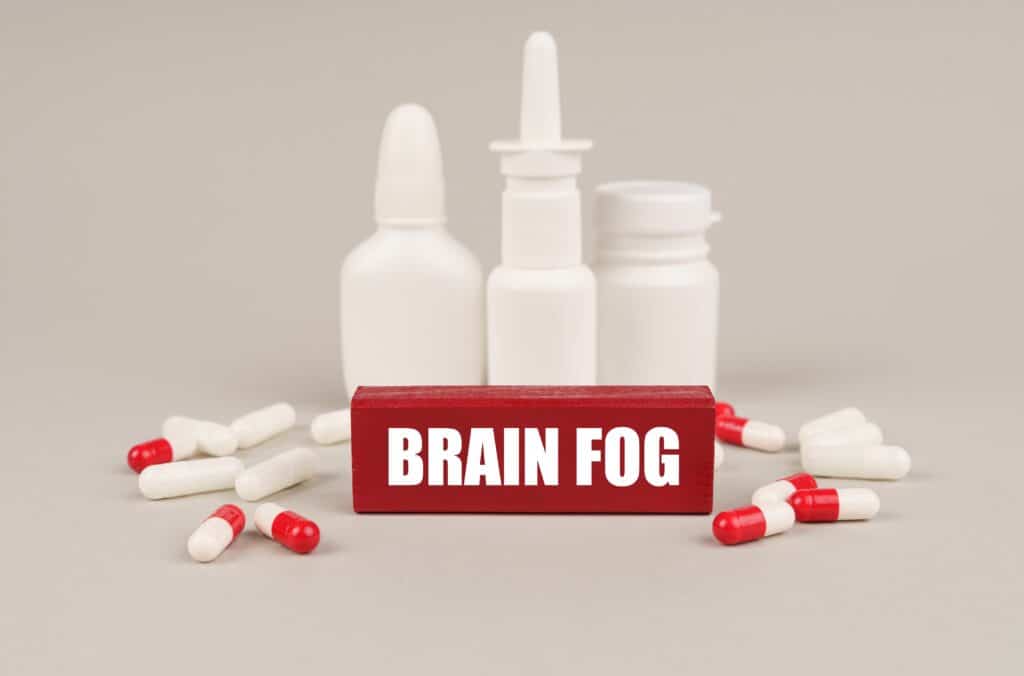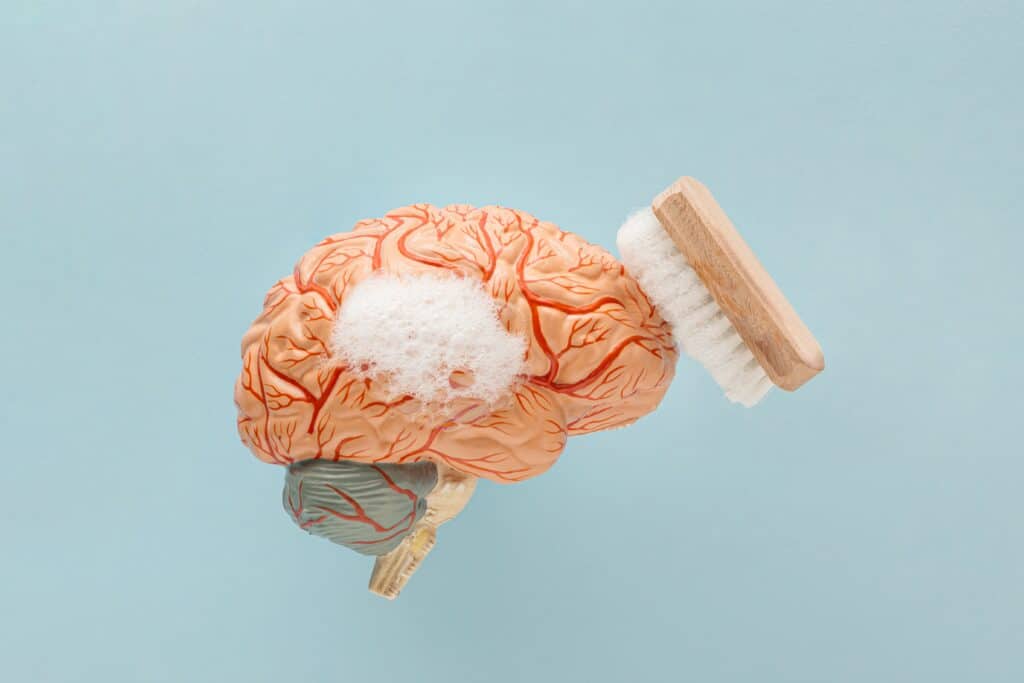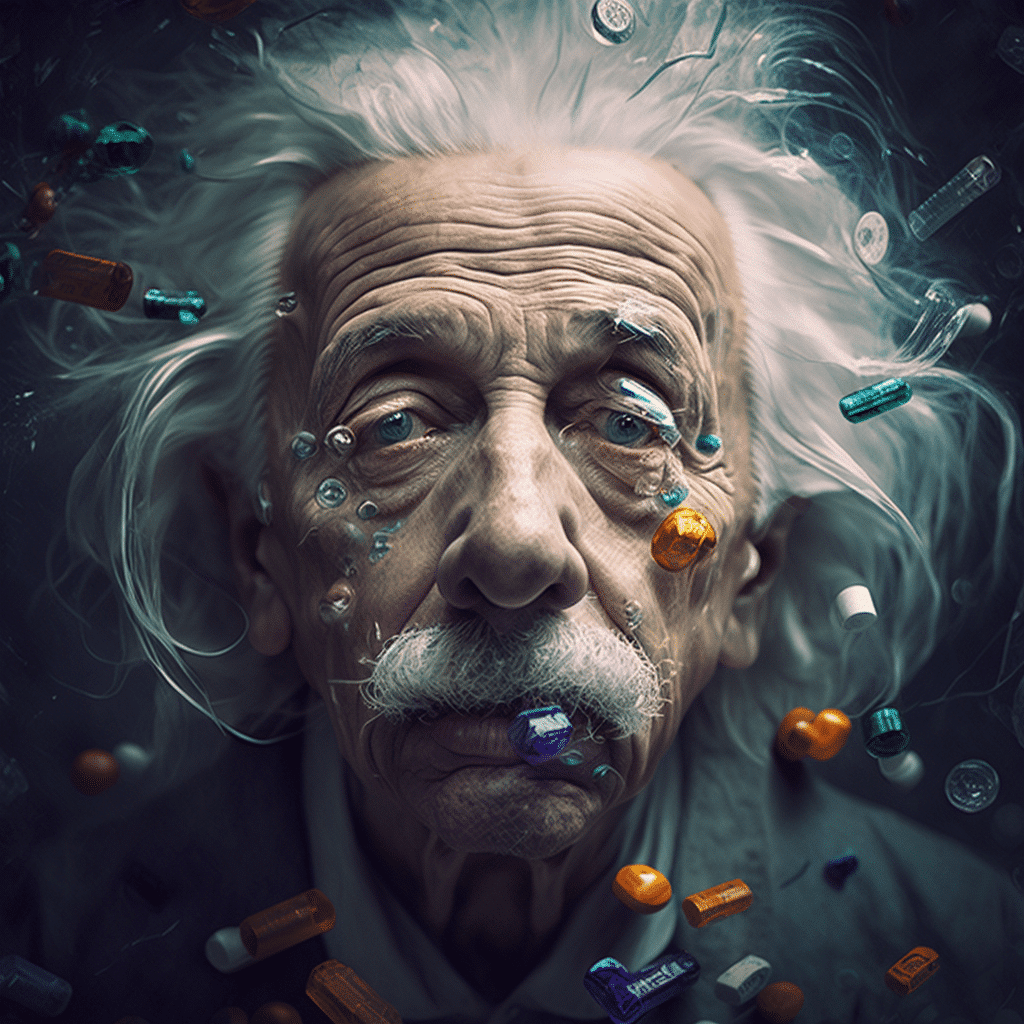
7 Shocking Facts About the Google Memory Game You Never Knew
We all have our favorite memory games, but did you know that Google has entered the ring with an impressive array of neurologic challenges for

Brain fog is a symptom commonly observed with various acute and chronic medical conditions, such as post-acute sequelae of COVID-19 (PASC, also referred to as “Long COVID“). Generally speaking, it causes feelings of mental fatigue, confusion, and difficulty focusing or thinking clearly.
Brain fog can be caused by a variety of causes, such as psychological factors like depression or anxiety, hormonal changes in the body due to stressors or medications, nutritional deficiencies (like vitamin B12 deficiency), chronic pain conditions, prolonged illness and treatment, anemia, autoimmunity conditions like Lupus or Lyme disease and multiple sclerosis; poor sleep habits or sleep deprivation. Furthermore, brain fog may be one of many physical symptoms linked to long-term health effects from coronavirus infection.
Brain fog can be a symptom of long COVID due to ongoing inflammation caused by the virus itself. A study conducted in 2020, involving 17 people with at least 3 weeks of symptoms experienced by 11 of them, found that 11 were still experiencing symptoms 6 weeks later – along with fatigue and difficulty focusing on mental tasks. Researchers believe lingering brain fog may be due to persistent inflammatory markers remaining in the body even after other symptoms have subsided; however, definitive causes for long COVID have yet to be identified and are being researched further.
It is important to remember that not all cases of long COVID involve brain fog; however, this symptom is common among those affected by it. To address this symptom, doctors suggest engaging in mindfulness practices like meditation and yoga which can reduce stress levels and promote relaxation techniques like deep breathing exercises to clear your mind. Lifestyle changes like abstaining from caffeine late at day, getting enough restful sleep each night, as well as proper nutrition since nutrient deficiencies may contribute significantly towards this affliction.

Brain fog and lightheadedness are two distinct symptoms that may indicate the presence of various medical conditions. Brain fog refers to feelings of confusion, forgetfulness, mental fatigue or difficulty focusing on tasks at hand. Lightheadedness is characterized by dizziness or faintness caused by reduced blood flow to the brain which may manifest as disorientation, dizziness, fainting attacks, confusion and exhaustion.
Brain fog and lightheadedness differ in their causes. Brain fog can be caused by various things such as lack of sleep, stress, poor nutrition/diet, dehydration or certain medications. On the other hand, lightheadedness typically has to do with your ability to pump enough blood throughout your body and up towards your brain; without enough oxygen being delivered via red blood cells carrying oxygen molecules around through respiration (if someone stands up suddenly after sitting or lying down for prolonged periods), then lightheadedness may ensue. It’s common that those who experience brain fog after experiencing brain fog after sleeping on or after taking certain medications will experience this sensation when standing up suddenly after sitting or lying down for extended periods of time.
In addition to their respective causes, there are other distinctions between brain fog and lightheadedness worth noting. Brain fog often impacts concentration levels while lightheadedness affects balance, vision stability and vision clarity – both having physical manifestations associated with them such as headaches with brain fog versus an increase in heart rate due to low blood pressure states (e.g. postural hypotension) with lightheadedness.
Lightheadedness is more transient than brain fog, which can linger if not addressed – this is because even though brain fog may be caused by events like stress, it does not go away on its own; rather, conscious effort must be put into changing lifestyle habits and treatment plans that address things like nutrition and sleep hygiene in order for improvements to take place in long-term cognition levels and mental health overall over time.
However, it’s essential to recognize that these two symptoms are connected as they both arise from similar physiological causes like fluctuations in hormone levels which affect cognitive abilities and how efficiently our bodies distribute oxygen throughout their systems (or not). Therefore, seeking medical help if these two symptoms persist over time – especially if they seem worse when performing everyday activities such as working or studying – will ensure an accurate diagnosis and appropriate treatment can begin promptly.

Brain fog and dissociation are two distinct psychological states that can manifest in various contexts, from everyday life to mental health disorders like depression or anxiety. To effectively diagnose and treat potential issues, it’s essential to recognize the distinctions between them.
Brain fog is a state of confusion, forgetfulness and difficulty concentrating. People often describe it as feeling like their minds are “foggy” or “cloudy,” leading to difficulty focusing on tasks or remembering important information. Signs include forgetfulness, difficulty making decisions, problems with multitasking, slowed thought processes and memory recall issues. Furthermore, brain fog often results in reduced productivity at work or school due to its effects on concentration levels, memory recall abilities and decision-making capacities.
Dissociation is a psychological state in which one experiences disconnection from both one’s thoughts and feelings, as well as disconnection from their environment or reality. It may include altered states of consciousness (daydreaming), feelings of detachment from oneself or environment, experiences of depersonalization (the feeling of being an outsider looking in), and moments of derealization (the sensation that everything around you is not real).
Dissociated individuals may experience memory lapses or distortions due to the extreme detachment they feel during episodes. In addition to feeling disconnected from reality during these experiences, people may also exhibit other symptoms such as lack of emotionalism, amnesia for certain periods prior to the episode, avoidance behavior when faced with certain topics/situations/people etc., decreased motor coordination and speech difficulties caused by difficulty processing information.
Brain fog differs from dissociation in that brain fog typically involves cognitive impairments, while dissociation typically involves emotional detachments from oneself and their environment. Brain fog usually arises due to a lack of oxygen reaching the brain – something which may be treated through lifestyle changes – while dissociative disorders require more extensive psychological therapy due to their deeply-rooted roots in trauma history or early life experiences. Therefore, it’s essential to recognize this distinction between them so accurate diagnoses can be made and appropriate treatments pursued when necessary.

Brain fog and dementia are two distinct neurological conditions, though both may cause confusion, memory loss and difficulty speaking English. Brain fog refers to a mental cloudiness or confusion that may be caused by conditions such as depression, anxiety, stress, lack of sleep or overworking. On the other hand, dementia is an umbrella term for symptoms related to cognitive decline in older age that could be caused by various diseases like Alzheimer’s disease, Lewy body disease or vascular dementia.
The primary distinction between brain fog and dementia lies in their causes. Brain fog typically results from chronic illness or lifestyle factors like poor nutrition, lack of sleep or stress from work or personal matters; on the other hand, dementia typically develops due to physical changes within the brain due to aging or other medical conditions like stroke or head trauma. As these nerve cells die off or stop working properly, cognitive abilities such as memory and language skills begin to decline.
Brain fog may cause cognitive impairment, but it usually does not interfere with daily life activities like dementia does. The effects of brain fog typically last only a short while while someone with dementia will experience long-term progressive changes in cognition which become more severe if left untreated.
Though both brain fog and dementia may present with similar symptoms, they are two distinct neurological conditions that require their own treatments and support services for successful management. It is essential to recognize the distinctions between them in order to receive an accurate diagnosis and receive effective treatments so that individuals affected can continue living a life at home with independence for as long as possible.
Nootropic supplements can be an effective tool in combatting brain fog. These supplements contain ingredients scientifically studied and proven to increase focus, memory, and cognitive flexibility – ultimately leading to improved mental performance. Popular nootropic supplements for brain fog include omega-3 fatty acids, acetyl-L-carnitine, phosphatidylserine, and vitamin B-12 which not only strengthen cognitive functions such as problem solving or learning but also provide anti-inflammatory benefits which may lessen symptoms associated with brain fog. Furthermore, some supplements may even reduce anxiety which further alleviates symptoms associated with anxiety.
Before taking any supplements, it’s best to consult a healthcare professional first to make sure they meet your individual needs. Furthermore, practice healthy lifestyle habits like eating nutritiously and exercising regularly – these can also help reduce brain fog. In conclusion, supplements can be an effective tool in managing brain fog; however it must be used alongside other coping strategies as well.
Note: Not all supplements are suitable for everyone; please consult a healthcare professional before taking any for brain fog symptoms. Moreover, not all supplements will have the same effects on everyone; thus it’s essential to find which ones work best for you and combine them with other coping strategies when managing symptoms of brain fog. With proper consideration and careful use, supplements can be an effective tool in managing symptoms effectively.

We all have our favorite memory games, but did you know that Google has entered the ring with an impressive array of neurologic challenges for

Einstein’s Universal Appeal: Exploring the Global Impact of an Iconic Genius in 2023 Why Does the World Remember Einstein as a World Citizen? What is

I genuinely dislike computer science, but that won’t stop me from earning my degree by 2023. It’s no secret that computer science classes can be

In the early days of Instagram, getting verified was considered a sign of honor. That little blue checkmark next to your name indicated you were
† These statements have not been evaluated by the FDA. This product is not intended to diagnose, treat, cure, or prevent any disease.